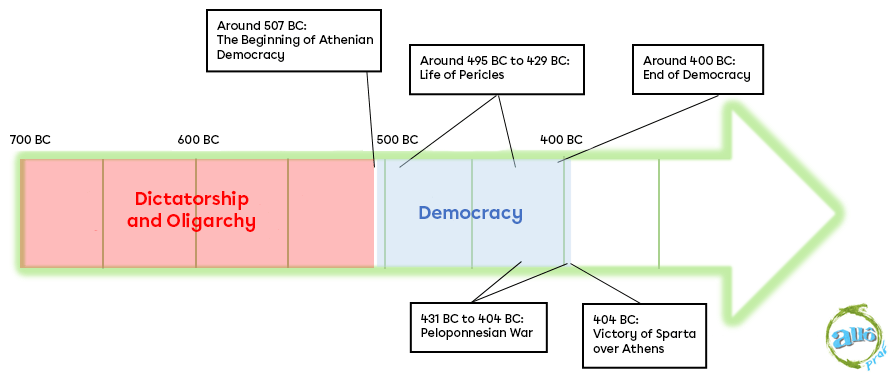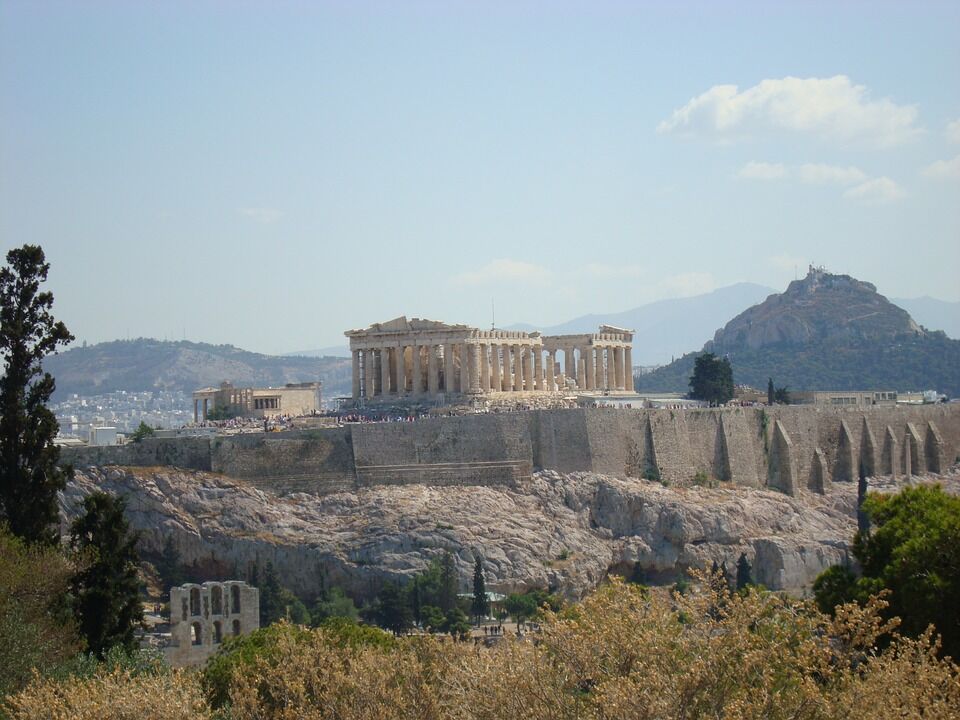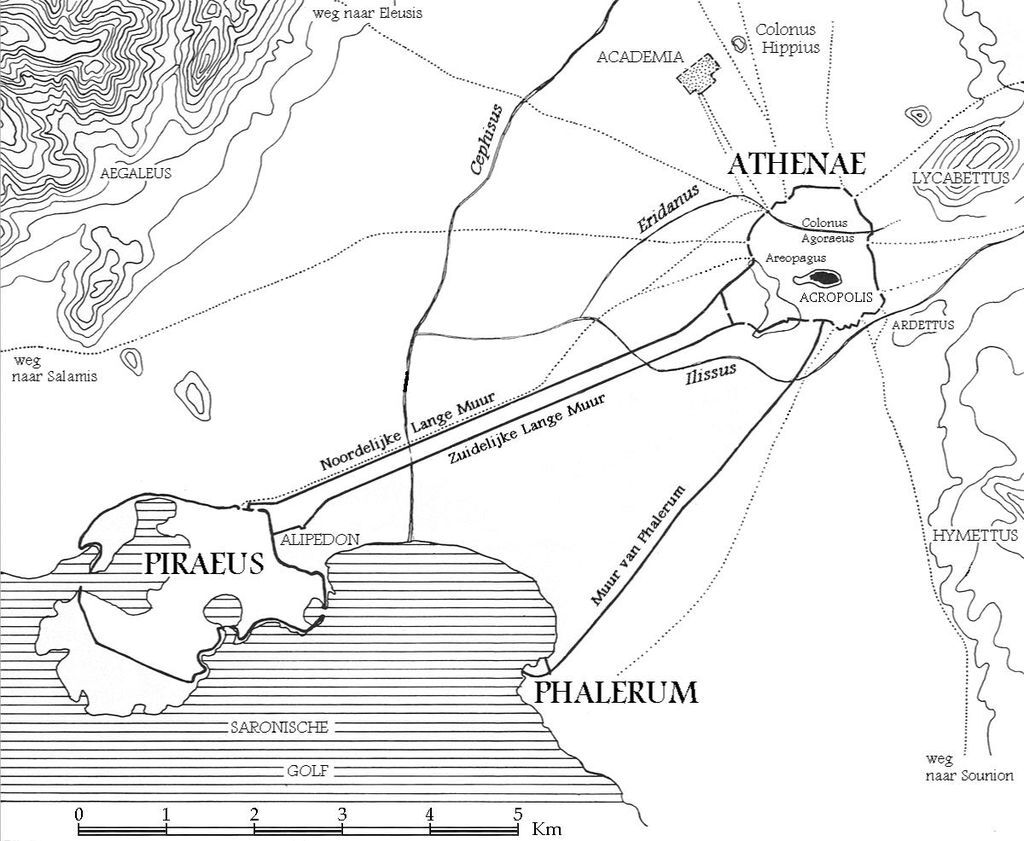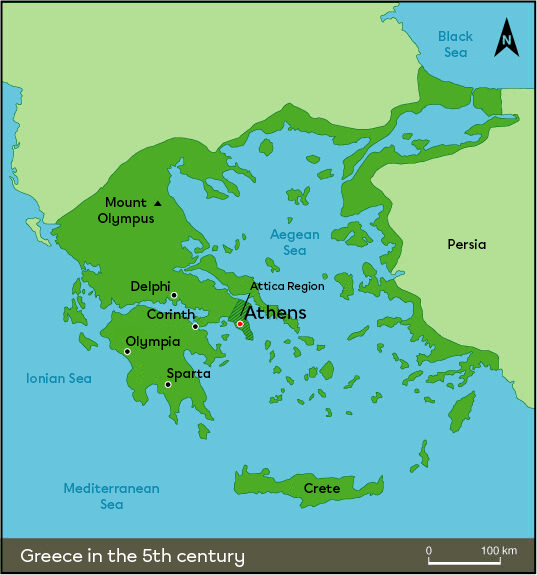
Greek civilisation developed mainly from the 8th century BC onwards. At that time, several city-states dotted the territory of the Greek peninsula. Delphi, Corinth, Athens and Sparta are all city-states from this period of antiquity.
City-state: In ancient Greece, a city-state was a totally independent city that governed itself. Like a country, it had its own laws, an autonomous form of government, its own currency, its own deities and its own courts.
The geographical features of the Greek peninsula had a major impact on the development of this civilisation. The landscape of the Greek peninsula meant that Greek cities had very little contact with their neighbours.
The Greek territory is very rugged, with mountains and very little flat land. This particular geographical situation isolated the Greek city-states from each other. It was therefore very difficult for them to communicate with each other. The main consequence of this geographical feature was that the city-states developed in very different ways from one another.

Athens, mountainous territory

Piraeus (the port of Athens) was linked to the city by a long wall.
Note: English image coming soon
The various city-states were almost all located close to the sea, with less than 100 kilometres separating them from it. As a result, the boat became the main means of transport for the Greeks in Antiquity. They therefore developed expertise in the naval field. Athens built the largest port in the Mediterranean, Piraeus.
The proximity of the sea also facilitated the colonisation of several territories. The Greeks used ships to create colonies and increase their influence around the Mediterranean.
From the 8th to the5th century BC, Athens had several political regimes. But Athens was mainly ruled by a king. In fact, monarchy was the political system found in the majority of Greek city-states. In the5th century BC, Athens developed a political system that was very different from the others: democracy.
Thanks to Piraeus, the largest port in the Mediterranean, Athens developed a highly profitable trade that enabled it to accumulate large sums of money. This wealth was used to develop the city, which modernised and increased its prestige.
During the Median Wars against the Persian Empire, Athens distinguished itself by defeating this powerful invading army on two occasions: at Marathon in 490 BC and at Salamis in 480 BC. The Athenian soldiers repelled the Persians, who wanted to take possession of Greek territory.
It was against this backdrop that the Athenians developed a new political system that allowed citizens, rich and poor alike, to take part in decisions affecting the city. They called this revolutionary system democracy.
